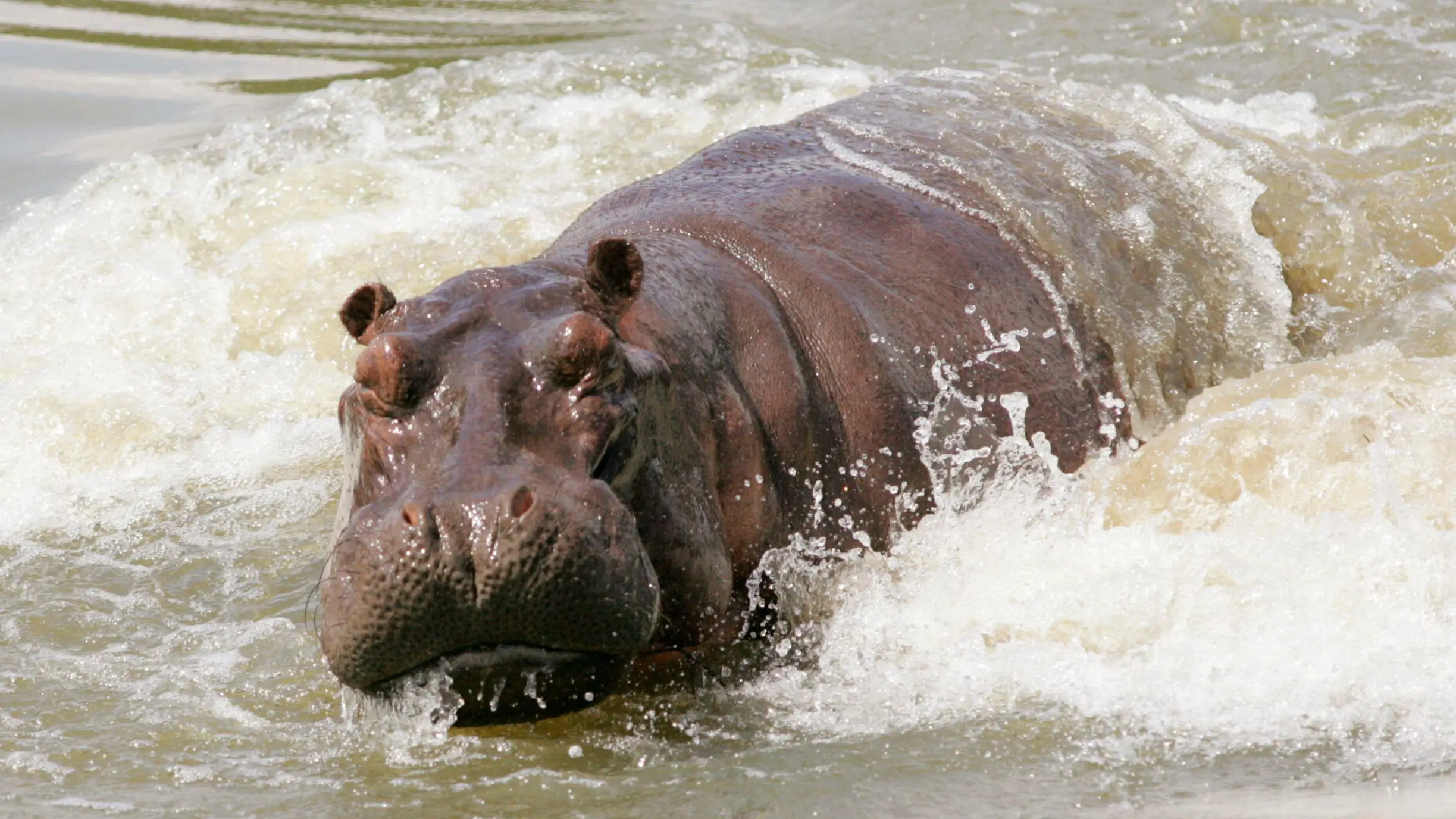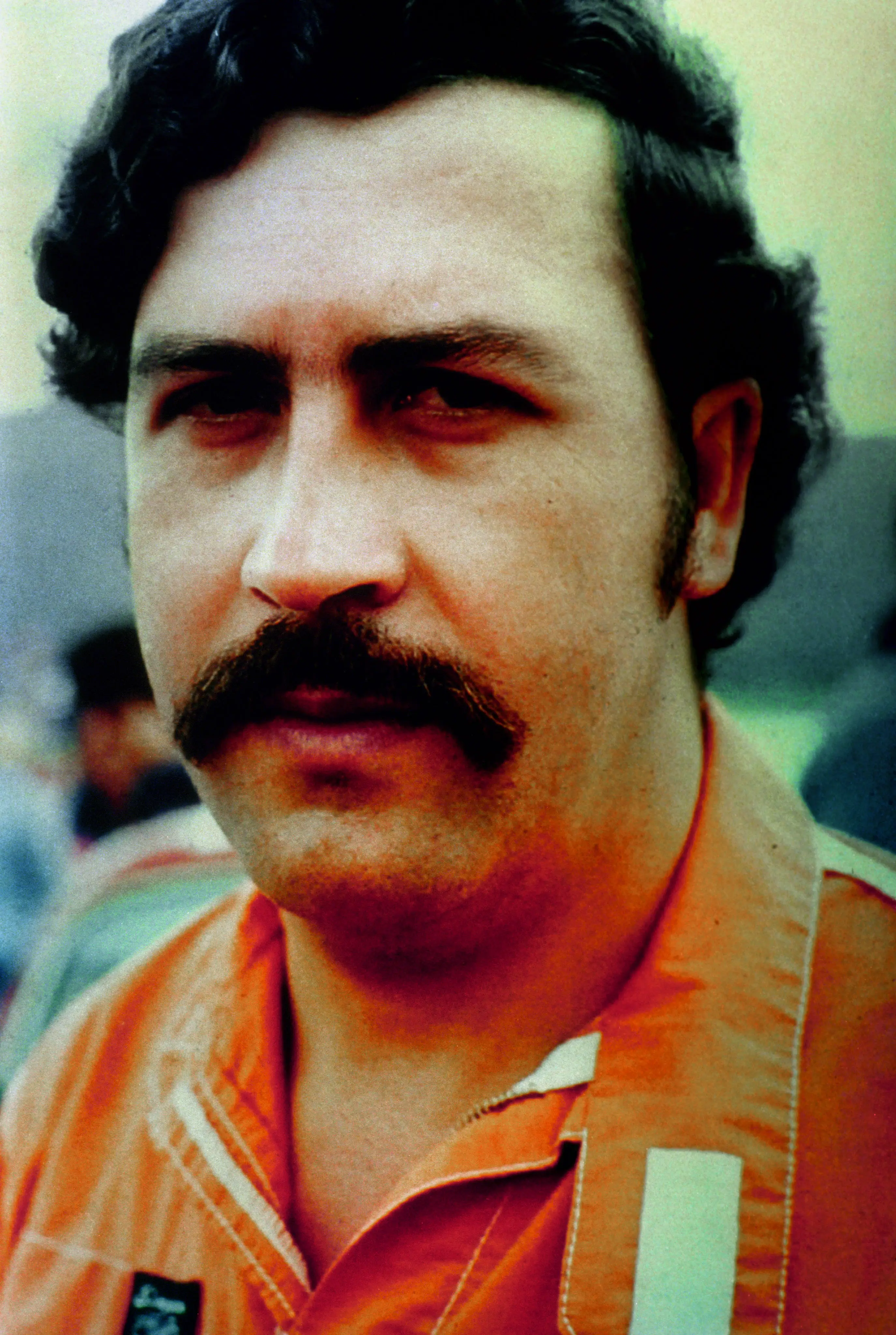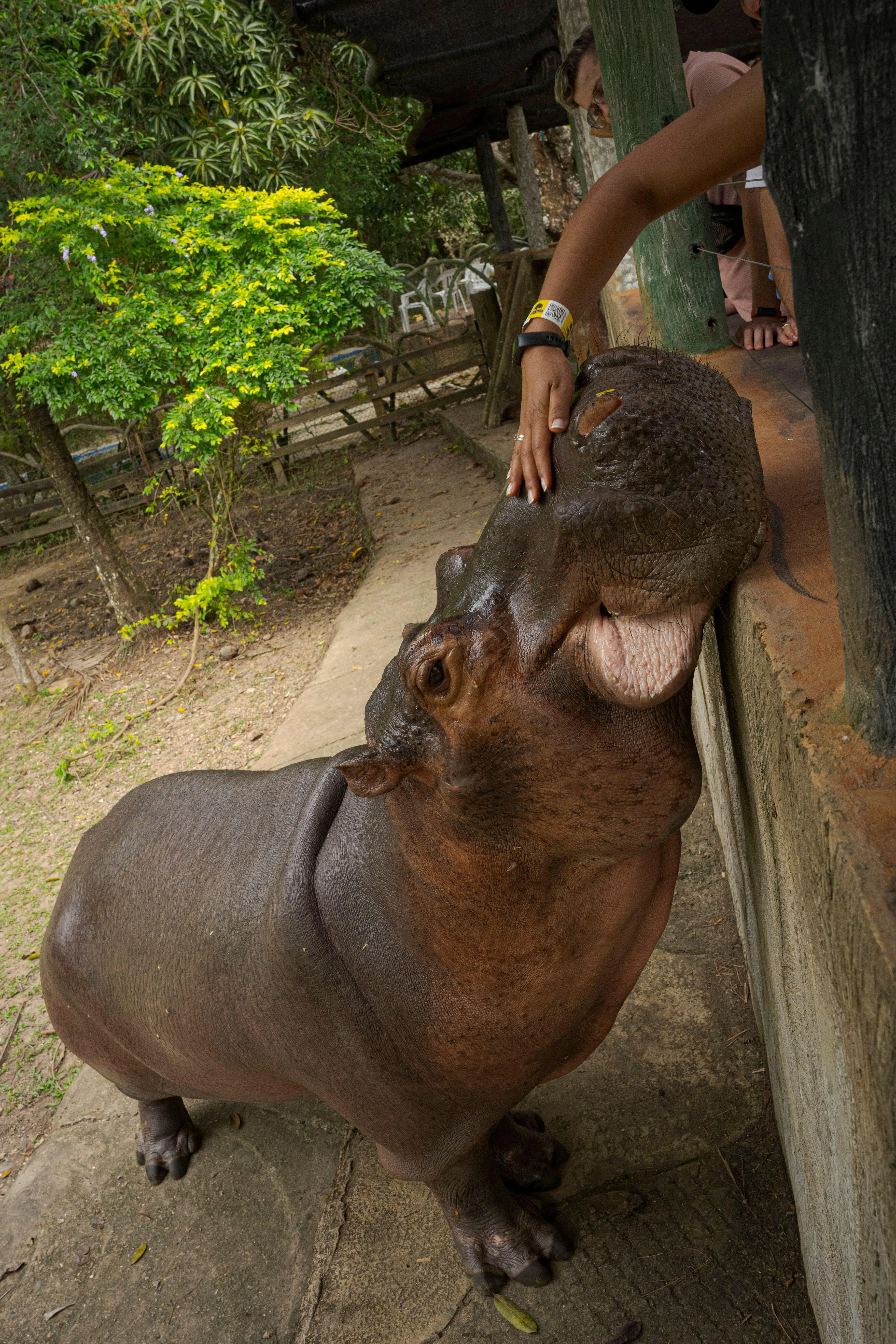
Like any drug kingpin worth his salt, Pablo Escobar lived a lavish lifestyle.
In the '80s, the Colombian built the biggest cocaine empire on the planet, all the while building his own personal zoo on the side.
No stranger to illegal imports, the former head of the Medellin Cartel had four hippos shipped in for his zoo - which was also home to kangaroos, giraffes and elephants.
After Escobar was killed by police in 1993, the government seized control of his estate and rounded up most of the animals, but the hippos were abandoned due to the cost and logistical issues associated with transporting them.
Advert
Fast-forward to the present day, and the so-called 'cocaine hippo' population has grown to around 130, and scientists have warned this number could grow to almost 1,500 by 2040.

However, the animals could now face a cull after the Colombian government added them to a list of 'introduced, invasive' species on Friday (4 February).
The mammals roam free north of Bogota around the Magdalena River, but experts warn they could do irreversible environmental damage if the population is allowed to grow unchecked.
The urine and faeces produced by the animals is toxic and contains bacteria that is dangerous to both other creatures and humans.

Their aggression also makes them dangerous. Hippos kill more people annually in their native Africa than any other mammal.
In October, one of the hippos attacked and seriously injured a man while he was fishing, and in 2020 one of the animals flung a cattle farmer in the air, breaking his hip, leg and several ribs.
They also threaten native endangered species, such as manatees.
The Cornare state environmental agency has managed to surgically sterilize 11 hippos and dart another 40 with contraceptives, but this has cost more than $100,000 (£74,000) and numbers have continued to grow.
David Echeverri, head of the agency, told AFP: "Sacrifice [culling] remains on the table.
"It is a necessary option... it could be the only way to stop the problem from getting worse.
"Everything with hippos is complex, expensive and dangerous."
In Africa, hippos have to compete for access to water, fend off disease and avoid being preyed upon by a variety of predators. Whereas in Colombia, an optimal environment defined by an abundance of rain and a lack of predators has allowed Escobar's hippos to thrive.
Speaking last year, Echeverri seemed hopeful of avoiding a cull.
He told The Telegraph: "There has to be another solution. These hippos have become part of the local identity. But time is running out."
Topics: Animals, Pablo Escobar, Drugs